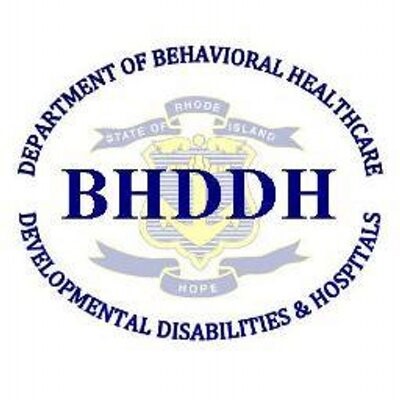Youth Suicide Prevention
 According to the 2019 Youth Risk Behavior Survey, in an average class of 25 high school students:
According to the 2019 Youth Risk Behavior Survey, in an average class of 25 high school students:
- 19 had at least one day in the past month where their mental health was not good (76%)
- 8 felt sad or hopeless for 2 or more weeks in the past year (32%)
- 3 have seriously considered suicide in the past year (13%)
- 3 have attempted suicide in the past year (14%)
And in an average class of 25 middle school students:
- 6 felt sad or hopeless for 2 or more weeks in the past year (25%)
- 4 have ever seriously considered suicide (16%)
- 2 have ever attempted suicide (6%)
The Rhode Island Youth Suicide Prevention Program (RIYSPP) is a partnership among RI Student Assistance Services (RISAS), the RI Department of Health, Bradley Hospital/Kids’ Link RI, Brown University, and RI school districts. RIYSPP serves 10- to 24-year-old youth at risk for suicide through universal prevention strategies and improved crisis intervention.
Through RISAS, RIYSPP provides the following services:
- In collaboration with Bradley Hospital, training for all Rhode Island school districts in the Suicide Prevention Initiative (SPI), a streamlined system for crisis assessment, intervention, behavioral health treatment and follow-up services. This free program includes:
- Training in the warning signs of suicide
- Assessing for suicide using the Columbia Suicide Severity Rating Scale (CSSRS)
- How to utilize a centralized intake process that enables school crisis teams to refer students directly to Kids’ Link RI, rather than having to send them to a hospital emergency department.
- Training in QPR (Question, Persuade, Refer), an evidence-based training on the warning signs of suicide and how to refer a youth for help. This free training is available to community-based organizations, parents and other groups.
RIYSPP benefits to public middle and high schools:
- Improved identification and evaluation of students at risk for suicide using a universal evidence-based screener and referral protocol
- Improved formal communication and follow-up between emergency and mental health service providers and schools
- Reduced ambulance transports, which results in less disruption for students and families
- Improved follow-up for youth referred for suicidal ideation
For more information or to request training for your school or organization, contact Program Manager Leigh A. Reposa at Lreposa@risas.org or 401-952-7260.
For more information on suicide prevention across the lifespan in RI go to https://preventsuicideri.org/
Warning Signs
Call 9-1-1 or seek immediate help from a mental health provider if you hear or see any of these behaviors:
- Someone threatening to hurt or kill themselves
- Someone looking for ways to kill themselves (for example, seeking access to pills, weapons, or other means)
- Someone talking or writing about death, dying, or suicide
Seek help by contacting a mental health professional or call 1-800-273-TALK for a referral if you witness, hear, or see anyone exhibiting any of these behaviors:
- Hopelessness
- Rage, anger, revenge seeking
- Acting reckless or engaging in risky activities, seemingly without thinking
- Feeling trapped or like there’s no way out
- Increasing alcohol or drug use
- Withdrawing from friends, family, or society
- Anxiety, agitation, inability to sleep, or sleeping all the time
- Dramatic mood changes
- No reason for living; no sense of purpose in life
Important Crisis Resources
- Regional Center for Poison Control and Prevention (for Massachusetts and Rhode Island): (or 1-800-222-1222)
- Kids’Link RI hotline 1-855-543-5465
- National Suicide Prevention Lifeline (or 1-800-273-TALK [8255])
- Lifeline Chat and Lifeline Chat en Español: A service of the National Suicide Prevention Lifeline that uses web chat to connect individuals with counselors for emotional support and other services.
- The Trevor Project (or 1-866-488-7386): A national organization that provides crisis intervention and suicide prevention services to LGBTQ young people under 25.
- IMALive: A live online network that uses instant messaging to respond to people in crisis.
- Veterans Crisis Line (or 1-800-273-8255–press 1 for veterans)
- 9-1-1 (for emergencies)
National Resources
RISAS is a Recovery Friendly Workplace and an equal opportunity employer.



